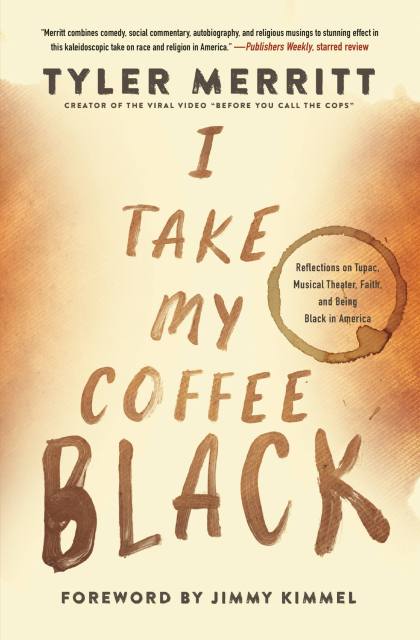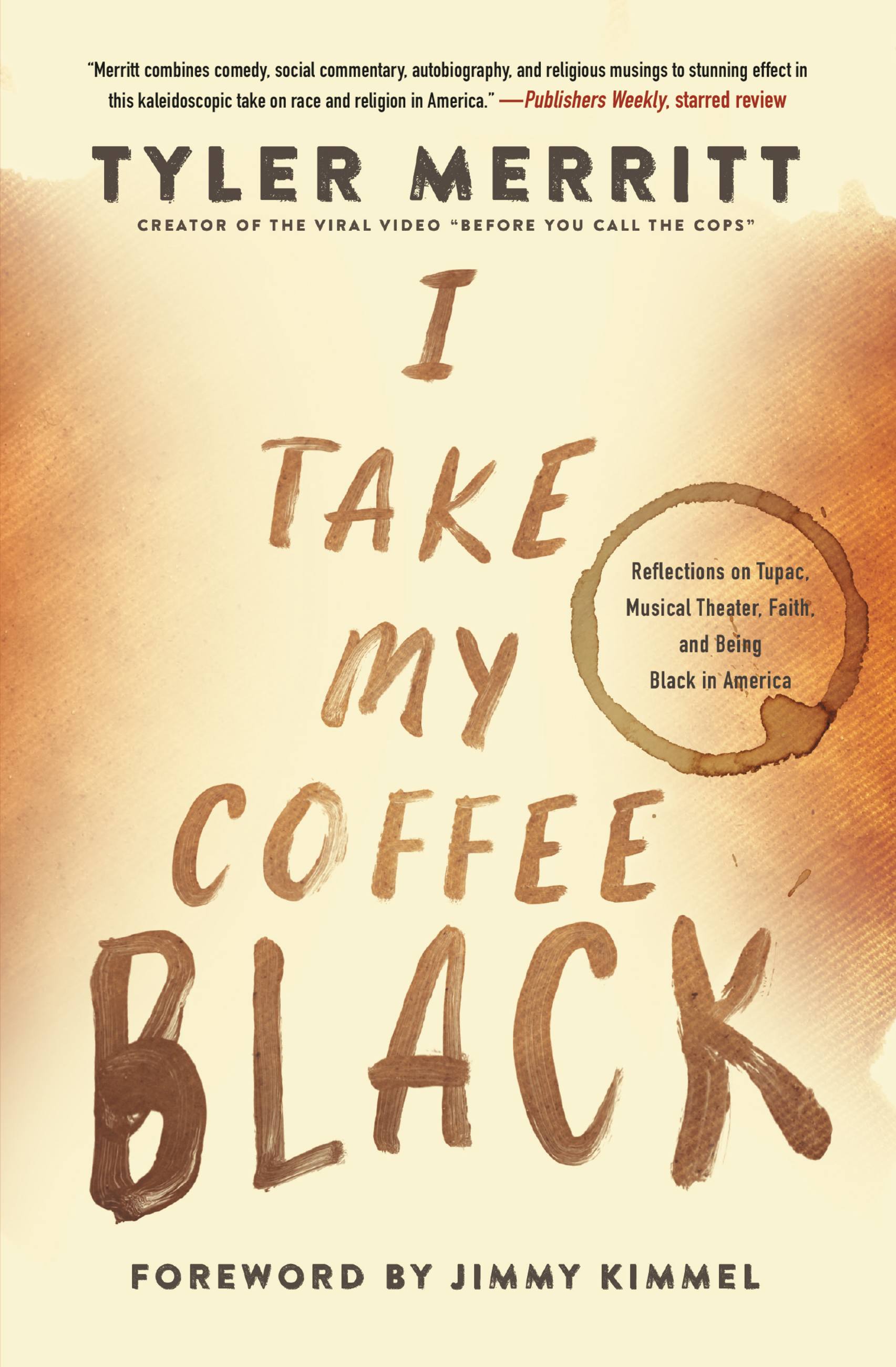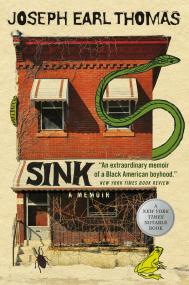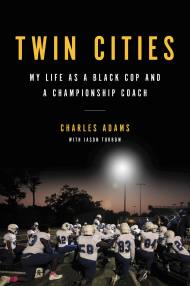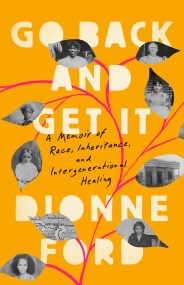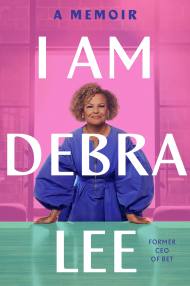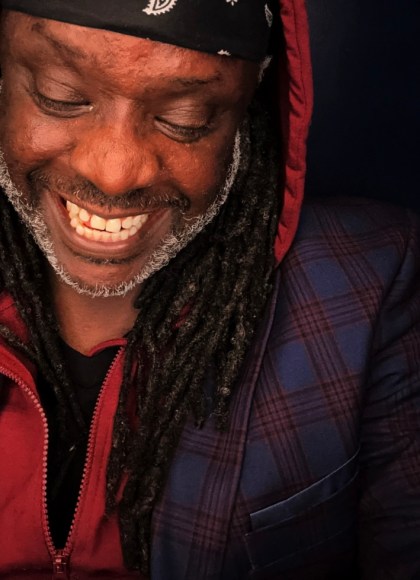Promotion
Sign up for our newsletters to receive 20% off! Shop now. Exclusions apply.
By clicking “Accept,” you agree to the use of cookies and similar technologies on your device as set forth in our Cookie Policy and our Privacy Policy. Please note that certain cookies are essential for this website to function properly and do not require user consent to be deployed.
I Take My Coffee Black
Reflections on Tupac, Musical Theater, Faith, and Being Black in America
Contributors
Foreword by Jimmy Kimmel
Formats and Prices
Price
$17.99Price
$23.99 CADFormat
Format:
- Trade Paperback $17.99 $23.99 CAD
- ebook $11.99 $15.99 CAD
- Hardcover $26.00 $33.00 CAD
- Audiobook Download (Unabridged) $27.99
- Audiobook CD (Unabridged) $35.00 $44.00 CAD
This item is a preorder. Your payment method will be charged immediately, and the product is expected to ship on or around April 4, 2023. This date is subject to change due to shipping delays beyond our control.
Also available from:
In this powerful memoir, the creator of the viral videos “Before You Call the Cops” and “Walking While Black”, Tyler Merritt, shares his experiences as a Black man in America with truth, humor, and poignancy.
Tyler Merritt’s video “Before You Call the Cops” has been viewed millions of times. He’s appeared on Jimmy Kimmel and Sports Illustrated and has been profiled in the New York Times. The viral video’s main point—the more you know someone, the more empathy, understanding, and compassion you have for that person—is the springboard for this book. By sharing his highs and exposing his lows, Tyler welcomes us into his world in order to help bridge the divides that seem to grow wider every day.In I Take My Coffee Black, Tyler tells hilarious stories from his own life as a black man in America. He talks about growing up in a multi-cultural community and realizing that he wasn’t always welcome, how he quit sports for musical theater (that’s where the girls were) to how Jesus barged in uninvited and changed his life forever (it all started with a Triple F.A.T. Goose jacket) to how he ended up at a small Bible college in Santa Cruz because he thought they had a great theater program (they didn’t). Throughout his stories, he also seamlessly weaves in lessons about privilege, the legacy of lynching and sharecropping and why you don’t cross black mamas. He teaches readers about the history of encoded racism that still undergirds our society today.
By turns witty, insightful, touching, and laugh-out-loud funny, I Take My Coffee Black paints a portrait of black manhood in America and enlightens, illuminates, and entertains—ultimately building the kind of empathy that might just be the antidote against the racial injustice in our society.
-
“A sad, happy, moving, troubling, inspirational, humorous and brutal account of the people and experiences that formed this exceptionally well-formed man... (Tyler Merritt) … subtly and kindly reminds us of how much we have in common and that assumptions are made by fools.”Jimmy Kimmel
-
“Stunning.”Publishers Weekly
-
“Tyler Merritt had me laughing, crying, and learning throughout I Take My Coffee Black. His writing and humor are brilliant, but his authenticity shines through above all. We really are beautiful in the broken places, and I’m better because he shared that beauty so transparently.”Jud Wilhite, senior pastor, Central Church, Las Vegas, Nevada, and author of Pursued
-
“I’ve never been schooled in such a charming way! Relevant, funny, poignant, and powerful, Tyler takes us on a deeply personal journey as he recounts his coming-of-age experiences and the devastating impact of America’s harsh realities. With delightful prose and meaningful intention, Tyler skillfully guides us toward our shared humanity yet doesn’t pull any punches discussing the historic facts about systemic racism. His deft and accessible storytelling offers us fresh perspective, allowing us to see with our eyes and hearts wide open, like his, and we leave feeling inspired and knowing, without a doubt, that we are all kindred.”Moira Walley-Beckett, Emmy Award–winning writer/executive producer, Breaking Bad, Anne with an E
-
“Listen. I don’t know what I expected when I picked up this book, but I know what I didn’t expect. I didn’t expect to laugh out loud multiple times, cry real tears, learn complete history lessons, and truly feel seen as a black person. If I’m being honest, it was more than feeling seen, it was feeling explained to the point of others being able to see me. Tyler does this in the most charming and disarming way. I will give this book to everyone I know who truly wants to understand the depth and breadth of what it is to be black.”Melinda Doolittle, recording artist, actress, and author
-
“Tyler Merritt invites us into his life with genuine, vulnerable humor that reveals deep truths. I Take My Coffee Black begs readers to consider the stereotypes and assumptions we all carry about one another and push against them for a higher chance at deep, lasting relationships with those who don’t look like us or live like us. As a Black man, this book speaks to the inner self that society, stigma, and stereotypes often push into the dark. A must-read.”Albert Tate, lead pastor of Fellowship Church and author
-
“I could not be more honored to be writing this endorsement. I am not only endorsing this book but also a man who has held a sacred and special place in my life over the last year and a half of knowing him. Tyler has used his life as a testimony to love others well and to encourage us to be more loving, kind, empathetic, and authentic humans. I Take My Coffee Black is a work that flows with truth, story, and conviction. Over the last few years, I have recognized just how uninformed I am. Tyler has been a voice of reason, truth, belief, and love to me and now we all get to hear from him in this book. If you are human, you should read this book. Take a seat and allow Tyler to speak into you like he has done to many. I am excited for you to read this book.”Benjamin Higgins, television personality, entrepreneur, and former Bachelor
-
“To know someone is to love them, and Tyler Merritt reveals himself completely in this poignant and vulnerable memoir laced with Black history, the personal effects of systemic racism, show tunes, Jesus, and his brilliant sense of humor. The antidote to our nation’s current divide is understanding…and the intimacy at which Tyler shares his life experience as a Black man in the US makes you understand. You have no other choice but to love him…and this book.”Laura Bell Bundy, Broadway actress and singer
-
“I Take My Coffee Black is equal parts endearing, eye-opening, and insightful. It makes me, as a white woman who has had a vastly different upbringing and experiences (I grew up in the suburbs of Minneapolis), thirsty to do better in my expansion and interactions with more people around me—especially those who I wouldn’t normally pass walking down the street in said small-town Minnesota. Tyler has a way to grab ahold of the reader to push them to genuinely want to connect with others, all races, religions, ethnicities, socio-economic statuses encompassed, and to get to know them for who they are to their core. Because if everybody did this a little bit more, our country—and world—would look like a much different place. Hopefully a more peaceful, accepting one. He incorporated the perfect combo of wit, realness, growth, and openness that I don’t often have the privilege of receiving in many books. It was a real treat for me to spend my time reading through these pages. Maybe one day I’ll be so lucky as to sit down face-to-face with Tyler, share a cup of joe, and dive deeper into all things life (of course, black for him and a splash of oat milk for me).”Rebecca Kufrin, television personality, The Bachelor and The Bachelorette
-
"Tyler is a gifted storyteller that masterfully threads the needle of pain and triumph. Though this book is Tyler’s journey, his trajectory is warm and reassuring to those who have walked that path, and eye opening and informative to those who didn’t know this side of America existed. The highs and the lows, the laughs and the struggles. This is one man’s story, but you soon see that it is connected to a great consciousness that connects through us all."Roy Wood Jr, Correspondent ‘The Daily Show w/ Trevor Noah’
-
"Tyler Merritt is a national treasure. His insight is exceeded only by his empathy. And his stories of the joys, pathos and terrors of being a Black man in America will make you laugh, leave you in tears, and feed your mind and your soul."Joy Reid, host of MSNBC’s “AMJoy” and author
-
"A whole bunch of love wrapped in a nice warm cup of coffee. Black, of course. Tyler takes me back home to Vegas in a way I haven’t thought about before. He shares his journey in life in ways we can all relate to. It’s poignant, inspiring, with splashes of humor that give you just enough of a release. A beautiful perspective on his bravery to face his truth and live in it as a black man in America."Rutina Wesley, actress on HBO's True Blood and AMC's The Walking Dead
-
“When I first saw Tyler Merritt's video "Before You Call the Cops" I thought, “If there are more powerful things on Twitter tonight, I haven’t seen them.” Amid the noise of our debates over race, his voice was honest, passionate, human, and challenged our deepest assumptions about one another. It still haunts me. Fortunately, he has a lot more to say; and in I Take My Coffee Black, he takes us into life – all of its triumphs, pratfalls, frustrations, and triumphs. It’s an entertaining and provocative read from one of our most important voices, at a time we need it most. And, by the way, he’s a vegetarian and he can sing every single word from Oklahoma."Charles Sykes, Founder, Editor-at-large, The Bulwark
-
“I first met Tyler at a gig in Nashville when my pal Rob Cureton brought him backstage to say hi. We hung out together while Immer and I wrote that night’s set list. He reminded me of Rob and a lot of my best friends, just a nice friendly guy. I felt like we had a lot in common. Like all people though, I’m sure we’re different in many ways, the most obvious being that he’s black and I’m not. You may or may not think that matters but it does. The skin we live in is the first thing anyone notices about us and Tyler tells the story of living in his with understanding and a truly warm heart. Reading Tyler’s book I Take My Coffee Black about his life in his skin reminded me a lot of that night backstage: however different our stories are, however different our skins are, Tyler is the friend we all need in our lives.”Adam Duritz, lead singer of Counting Crows
-
“Tyler Merritt makes me think. He makes me cry. He makes me laugh so hard I pee a little bit. Tyler doesn't just make me feel something, he makes me feel all the things. "I take my coffee black" is a wonderful insight into what it is to be a black man in our world. His stories are educational, relatable, touching, thought-provoking, and as I said, will make you laugh so hard you might pee yourself a little bit.”Wells Adams, radio host and television personality
- On Sale
- Apr 4, 2023
- Page Count
- 320 pages
- Publisher
- Worthy Books
- ISBN-13
- 9781546029427
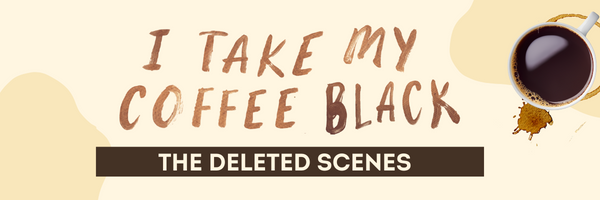
Praise
-
“A sad, happy, moving, troubling, inspirational, humorous and brutal account of the people and experiences that formed this exceptionally well-formed man… (Tyler Merritt) … subtly and kindly reminds us of how much we have in common and that assumptions are made by fools.”Jimmy Kimmel
-
“Stunning.”Publishers Weekly
-
“Tyler Merritt had me laughing, crying, and learning throughout I Take My Coffee Black. His writing and humor are brilliant, but his authenticity shines through above all. We really are beautiful in the broken places, and I’m better because he shared that beauty so transparently.”Jud Wilhite, senior pastor, Central Church, Las Vegas, Nevada, and author of Pursued
-
“I’ve never been schooled in such a charming way! Relevant, funny, poignant, and powerful, Tyler takes us on a deeply personal journey as he recounts his coming-of-age experiences and the devastating impact of America’s harsh realities. With delightful prose and meaningful intention, Tyler skillfully guides us toward our shared humanity yet doesn’t pull any punches discussing the historic facts about systemic racism. His deft and accessible storytelling offers us fresh perspective, allowing us to see with our eyes and hearts wide open, like his, and we leave feeling inspired and knowing, without a doubt, that we are all kindred.”Moira Walley-Beckett, Emmy Award–winning writer/executive producer, Breaking Bad, Anne with an E
-
“Listen. I don’t know what I expected when I picked up this book, but I know what I didn’t expect. I didn’t expect to laugh out loud multiple times, cry real tears, learn complete history lessons, and truly feel seen as a black person. If I’m being honest, it was more than feeling seen, it was feeling explained to the point of others being able to see me. Tyler does this in the most charming and disarming way. I will give this book to everyone I know who truly wants to understand the depth and breadth of what it is to be black.”Melinda Doolittle, recording artist, actress, and author
-
“Tyler Merritt invites us into his life with genuine, vulnerable humor that reveals deep truths. I Take My Coffee Black begs readers to consider the stereotypes and assumptions we all carry about one another and push against them for a higher chance at deep, lasting relationships with those who don’t look like us or live like us. As a Black man, this book speaks to the inner self that society, stigma, and stereotypes often push into the dark. A must-read.”Albert Tate, lead pastor of Fellowship Church and author
-
“I could not be more honored to be writing this endorsement. I am not only endorsing this book but also a man who has held a sacred and special place in my life over the last year and a half of knowing him. Tyler has used his life as a testimony to love others well and to encourage us to be more loving, kind, empathetic, and authentic humans. I Take My Coffee Black is a work that flows with truth, story, and conviction. Over the last few years, I have recognized just how uninformed I am. Tyler has been a voice of reason, truth, belief, and love to me and now we all get to hear from him in this book. If you are human, you should read this book. Take a seat and allow Tyler to speak into you like he has done to many. I am excited for you to read this book.”Benjamin Higgins, television personality, entrepreneur, and former Bachelor
-
“To know someone is to love them, and Tyler Merritt reveals himself completely in this poignant and vulnerable memoir laced with Black history, the personal effects of systemic racism, show tunes, Jesus, and his brilliant sense of humor. The antidote to our nation’s current divide is understanding…and the intimacy at which Tyler shares his life experience as a Black man in the US makes you understand. You have no other choice but to love him…and this book.”Laura Bell Bundy, Broadway actress and singer
-
“I Take My Coffee Black is equal parts endearing, eye-opening, and insightful. It makes me, as a white woman who has had a vastly different upbringing and experiences (I grew up in the suburbs of Minneapolis), thirsty to do better in my expansion and interactions with more people around me—especially those who I wouldn’t normally pass walking down the street in said small-town Minnesota. Tyler has a way to grab ahold of the reader to push them to genuinely want to connect with others, all races, religions, ethnicities, socio-economic statuses encompassed, and to get to know them for who they are to their core. Because if everybody did this a little bit more, our country—and world—would look like a much different place. Hopefully a more peaceful, accepting one. He incorporated the perfect combo of wit, realness, growth, and openness that I don’t often have the privilege of receiving in many books. It was a real treat for me to spend my time reading through these pages. Maybe one day I’ll be so lucky as to sit down face-to-face with Tyler, share a cup of joe, and dive deeper into all things life (of course, black for him and a splash of oat milk for me).”Rebecca Kufrin, television personality, The Bachelor and The Bachelorette
-
“Tyler is a gifted storyteller that masterfully threads the needle of pain and triumph. Though this book is Tyler’s journey, his trajectory is warm and reassuring to those who have walked that path, and eye opening and informative to those who didn’t know this side of America existed. The highs and the lows, the laughs and the struggles. This is one man’s story, but you soon see that it is connected to a great consciousness that connects through us all.”Roy Wood Jr, Correspondent ‘The Daily Show w/ Trevor Noah’
-
“Tyler Merritt is a national treasure. His insight is exceeded only by his empathy. And his stories of the joys, pathos and terrors of being a Black man in America will make you laugh, leave you in tears, and feed your mind and your soul.”Joy Reid, host of MSNBC’s “AMJoy” and author
-
“A whole bunch of love wrapped in a nice warm cup of coffee. Black, of course. Tyler takes me back home to Vegas in a way I haven’t thought about before. He shares his journey in life in ways we can all relate to. It’s poignant, inspiring, with splashes of humor that give you just enough of a release. A beautiful perspective on his bravery to face his truth and live in it as a black man in America.”Rutina Wesley, actress on HBO's True Blood and AMC's The Walking Dead
-
“When I first saw Tyler Merritt’s video “Before You Call the Cops” I thought, “If there are more powerful things on Twitter tonight, I haven’t seen them.” Amid the noise of our debates over race, his voice was honest, passionate, human, and challenged our deepest assumptions about one another. It still haunts me. Fortunately, he has a lot more to say; and in I Take My Coffee Black, he takes us into life – all of its triumphs, pratfalls, frustrations, and triumphs. It’s an entertaining and provocative read from one of our most important voices, at a time we need it most. And, by the way, he’s a vegetarian and he can sing every single word from Oklahoma.”Charles Sykes, Founder, Editor-at-large, The Bulwark
-
“I first met Tyler at a gig in Nashville when my pal Rob Cureton brought him backstage to say hi. We hung out together while Immer and I wrote that night’s set list. He reminded me of Rob and a lot of my best friends, just a nice friendly guy. I felt like we had a lot in common. Like all people though, I’m sure we’re different in many ways, the most obvious being that he’s black and I’m not. You may or may not think that matters but it does. The skin we live in is the first thing anyone notices about us and Tyler tells the story of living in his with understanding and a truly warm heart. Reading Tyler’s book I Take My Coffee Black about his life in his skin reminded me a lot of that night backstage: however different our stories are, however different our skins are, Tyler is the friend we all need in our lives.”Adam Duritz, lead singer of Counting Crows
-
“Tyler Merritt makes me think. He makes me cry. He makes me laugh so hard I pee a little bit. Tyler doesn’t just make me feel something, he makes me feel all the things. “I take my coffee black” is a wonderful insight into what it is to be a black man in our world. His stories are educational, relatable, touching, thought-provoking, and as I said, will make you laugh so hard you might pee yourself a little bit.”Wells Adams, radio host and television personality
